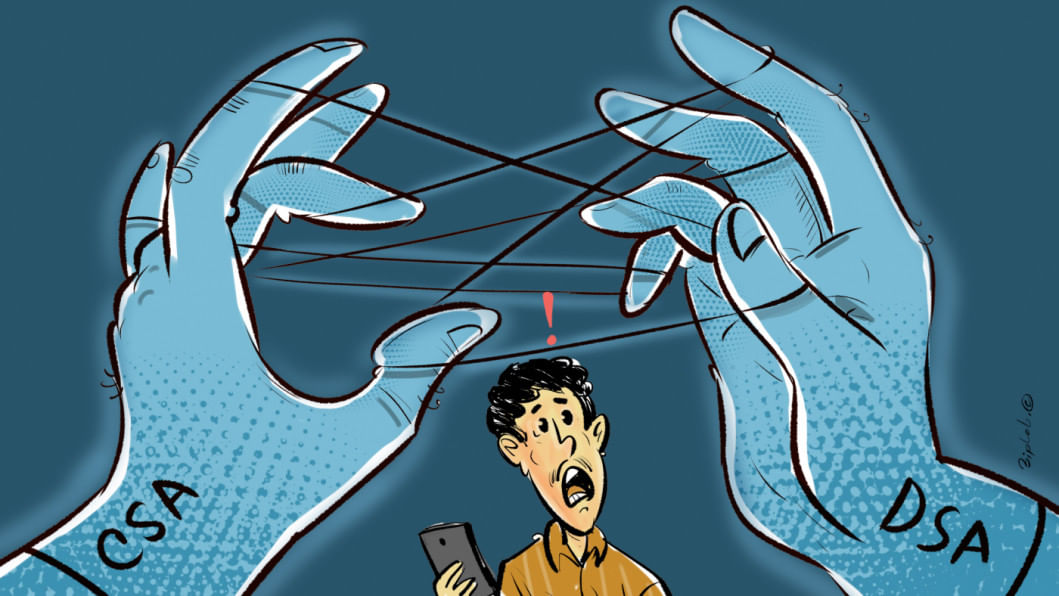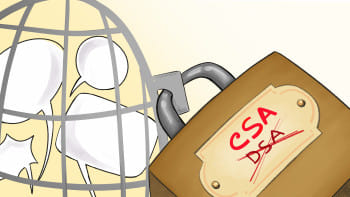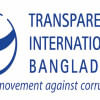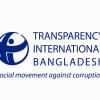Column by Mahfuz Anam: DSA to CSA, a sham of a reform

I like our law minister for his one extraordinary habit: he answers all calls on his mobile phone personally. It is a superb courtesy that he extends to all and for which I thank him most profusely. However, I so earnestly wish I could thank him just as profusely for the way he prepared the Cyber Security Act (CSA), which is slated to replace the hated Digital Security Act (DSA). Regrettably, I cannot. In contrast to the openness he demonstrates by receiving calls from all and sundry, the secrecy with which he prepared the CSA is inexplicable. There were media reports of his meetings on the CSA with some stakeholders, with relevant UN bodies, and heads of some civil society bodies. They were listened to and repeatedly reassured that the revised law would live up to democratic norms – but were never shown the draft, not even its outline.
What was inexplicable was that our law minister did not meet any representative of journalist unions, editors' bodies or any other representative institutions of journalists. As journalists were among the biggest victims of the DSA and it was they who were at the forefront of protesting against the DSA, not talking to them while formulating the CSA boggles the mind.
It is our view that it was the media's activism, along with strong protests by civic bodies, that triggered the reform process of the DSA. The law minister repeated ad infinitum that the DSA was not meant to curb freedom of press or freedom of expression. And yet, journalists, dissenters and rights activists continued to be jailed, harassed and intimidated. He repeatedly assured that measures had been taken not to arrest journalists immediately upon the filing of a DSA case. And yet, arrests continued. In the recent past, as the draft CSA was being finalised, the law minister assured all concerned that the new law would make us happy.
Tragically, happiness is still eluding us and, in its place, nightmare seems set to be replayed. Those who have seen the CSA draft cannot but conclude that change has been more in name than in substance. It was tweaking at best. Few sections have been made bailable and, in some cases, jail terms – which were already absurd and totally disproportionate – have been reduced. But fines have been hiked to a level that most media houses cannot afford, leave alone individual journalists.
What was inexplicable was that our law minister did not meet any representative of journalist unions, editors' bodies or any other representative institutions of journalists. As journalists were among the biggest victims of the DSA and it was they who were at the forefront of protesting against the DSA, not talking to them while formulating the CSA boggles the mind.
When the DSA was formulated five years ago, the public was told that it was to prevent cybercrimes. In reality, the law became an instrument in the hands of the government to suppress its opponents, critics, and the independent media. To put it bluntly, the DSA is a political instrument in the garb of a law.
So, will the CSA turn out to be the same? Its draft clearly indicates as much. It is just as anti-freedom of speech, anti-freedom of expression, and anti-freedom of press as the DSA. As Transparency International Bangladesh (TIB) has stated, "The draft contains all provisions of the DSA that curbed freedom of speech, dissent, freedom of thought and conscience, and particularly the freedom of the press and independent journalism."
The very process of formulating the CSA gives us some idea as to the government's sincerity of purpose. After years of protest by journalists, rights bodies, and civil society, the government opened itself up to amending the DSA. Following repeated commitment to various UN fora, in June last year, the Office of the United Nations High Commissioner for Human Rights (OHCHR) issued a technical note to the government recommending a revision of the DSA. The note was detailed and suggested point-by-point reformulation. The UN special rapporteur for freedom of expression also called for repealing the DSA.
As flagrant abuse led to repeated condemnation, and as global and domestic criticisms became more virulent, the government on August 7 announced replacing the DSA with the proposed CSA. Two days later, on August 9, the draft CSA was published on the website of the ICT ministry, asking for stakeholder comments by August 22. Then, on August 28, the cabinet approved the draft.
The first question that occurs to us is, after years of protest and waiting, why is the CSA being pushed through so hurriedly? The draft that was approved by the cabinet and the one that was posted on the website of the ICT ministry has turned out to be the same, except that an additional section had been made bailable. So we can conclude that whatever inputs came from stakeholders were either not taken note of or were ignored totally, making the whole exercise a sham.
On August 30, the law minister said there was still time to make inputs as "stakeholders will be called to the parliamentary standing committee meetings and the matter will be discussed." We recall the same exercise being done while finalising the DSA. Last time, too, those of us from the media were not consulted while the DSA was being drafted – or, should we say, crafted. When we finally became aware of it, we raised our legitimate concerns and, like this time, were assured that all our objections would be heard and duly responded to as the draft DSA was being considered by the parliamentary standing committee.
Well, this writer had the honour of being one of the invitees along with a few others from the media. We attended two or three sessions and provided detailed written submissions for the committee to consider. We made clear how the draft DSA would destroy freedom of expression and freedom of media and how it would harm the status and prestige of the country at the international level. I want to categorically state that not a single one of our suggestions was accepted. In fact, on the day the bill was tabled in the House, we saw a more stringent version of it – giving police greater power – than the one we were shown during discussions. There was no explanation as to why our suggestions had been rejected outright. Still, the government and the parliamentary committee are able to say that due discussions were held with media representatives while finalising the DSA.
The concerned minister, while introducing the DSA bill to the parliament, said the whole world was waiting with eagerness and excitement to see the new law being enacted in Bangladesh and, upon seeing it, would flood us with eulogies for the wisdom contained in our law. We now know how the world reacted and judged us. It is our view that whatever gains Sheikh Hasina's government made at the international level for its success in economic growth were eroded significantly due to this repressive law. Nothing eroded this regime's international image more than this single law.
Should the government repeat the same mistake, it will face stronger criticism and suffer greater erosion of its status as a democracy.
Mahfuz Anam is the editor and publisher of The Daily Star.


 For all latest news, follow The Daily Star's Google News channel.
For all latest news, follow The Daily Star's Google News channel. 









Comments